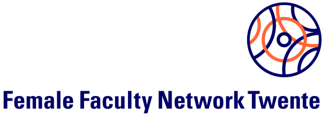To celebrate the International Women’s Day we invited Heleen Mees to give a lecture on her much debated topic: No more part-time feminism.
The lecture is on Friday the 6th of March in the Vrijhof, Amphitheatre.
Program:
15.00-16.00: Lecture
16.00-16.30: Questions and debate
16.30: Having a drink together to toast on the 8th of March.
Heleen Mees is going to focus on the following items:
- Why is the one-and-a-half breadwinner model so popular in the Netherlands, comparing to other countries like Sweden or the USA.
- What is the influence of this model/culture on the position of women in organizations?
- Various investigations point out that in academia women work almost as much as a man, so working part time isn’t a good explication for the low number of female professors and associate professors in our university.
- Recommendations for women and organizations to get more women on top.
Please sign up for this lecture by sending an email to ffnt@utwente.nl.
To have a lively debate we ask you to bring with you one question to be asked to Heleen Mees after her lecture.
Heleen Mees is an economist, lawyer and columnist. She grew up in the neighbourhood of the UT. Since 2000 she lives in New York, where she works as an adviser on European Union affairs. Besides her bi-weekly column in NRC Handelsblad, Mees has published in the International Herald Tribune, Le Monde and the Financial Times. She is co-founder of Women on Top, an organization dedicated to improving the position of women across the globe.
This program is a co-production of Studium Generale with the OBP-VrouwenNetwerk and the Female Faculty Network Twente. This means the lecture is open to the whole UT community. An OBP-VN commission prepared the subject of the lecture.
Kind regards,
Monique Duyvestijn, PA&O
phone 3851
Coming activities: •17 March, Marieke van den Brink, lecture “Scouts are gender blind”, 16.00 hrs. Logica •21 April, Workshop Linda van der Wal, “Difficult people”, 13.00-17.00 hrs. building Logica | ||
| ||
FFNT aims to support the professional development of women in academia and to provide a network for sharing and exchanging experience. It develops workshops and lectures specially for women and also organises activities aimed at women jointly with PA&O (whose activities are otherwise gender neutral).

